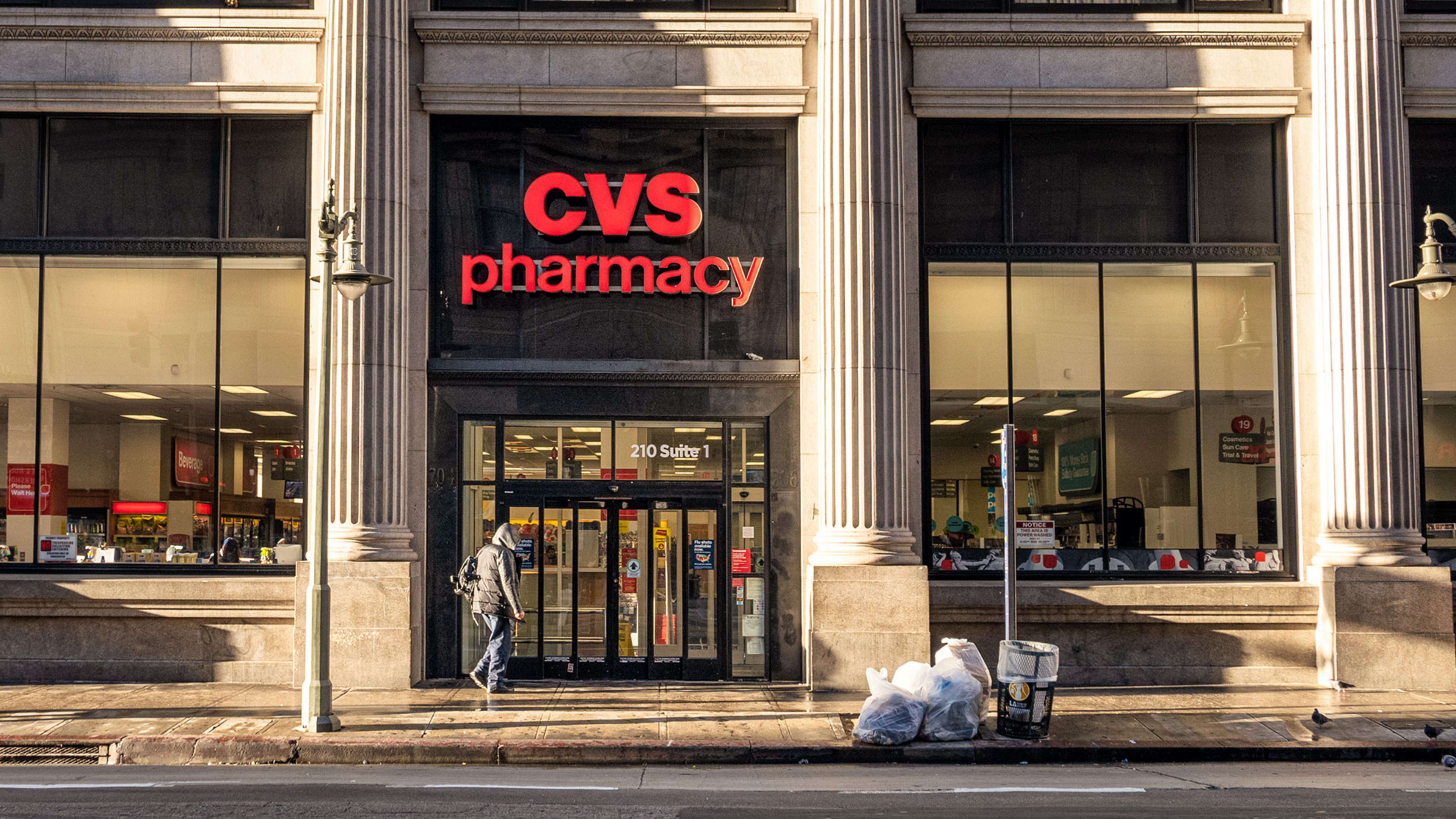The relentless culling of brick-and-mortar retail continues: On Thursday, drugstore megachain CVS revealed it will close 900 locations over the next three years.
The closures, the first of which are scheduled for spring 2022, amount to 300 per year, totaling roughly 9% of CVS’s 10,000 stores nationwide. In the future, the company said it will divide stores into three formats: (1) The traditional drugstore and pharmacy selling everything from potato chips to shampoo, (2) a pharmacy-focused “Health Hub,” and (3) a primary-care doctor’s office.
It all appears to be part of the company’s master plan (not unlike almost every major retailer out there): to pivot away from physical stores and toward digital, but also to rebrand itself as a key player in the healthcare space. CVS has been making moves to that goal for years: In 2018, it merged with health insurance giant Aetna, and in 2019, it unveiled its first three Health Hubs in Houston—essentially a MinuteClinic on steroids, offering full concierge services, rooms for fitness and nutrition classes, and medical staff who perform routine checkups.
Two years later, CVS is on track to open 1,500 Health Hubs by the end of December, a long-term target that seemed unobstructed by the COVID-19 pandemic. In fact, CVS became a vital aid station during the crisis as it supplied a network for testing and vaccination appointments—and with tens of millions of new customers stepping through pharmacy doors, it was a strategic opportunity for the company to plug in-store cholesterol tests and diabetes screenings as well.
Its grand vision, as CVS executives described to media outlets recently, involves remaking hundreds of its stores into physician-led medical practices capable of serving thousands of patients per day. It’s currently hustling to add doctors to its payroll, which it has said will ultimately increase access to healthcare and lower costs. How 900 store closures fits into this vision remains to be seen—and a map of affected locations could shed light on where CVS hopes to concentrate its new roster of healthcare providers—or where it needs to cut costs.
But in the meantime, it’s just another harbinger for the slow death of in-person shopping. Also today: Long-suffering department store Macy’s said it would shutter yet another set of retail locations in January.
Recognize your brand’s excellence by applying to this year’s Brands That Matter Awards before the final deadline, June 7.
Sign up for Brands That Matter notifications here.
